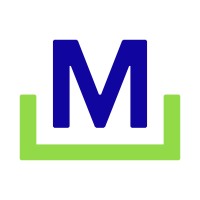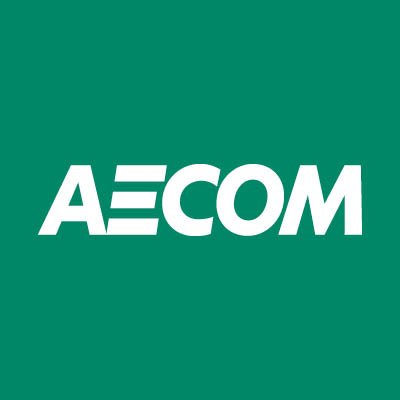Make decisions and recommendations recognized as authoritative and have important business impact on extensive engineering activities in planning and designing tools, engines, machines, and other mechanically functioning equipment as well as installation, operation, maintenance, and repair of equipment such as centralized heat, gas, water, and steam systems. Demonstrate creativity, foresight, and mature engineering judgment in anticipating and solving unprecedented engineering problems, determining program objectives and requirements performing feasibility studies, organizing programs and projects, and developing standards and guides for diverse engineering activities. Conceive, develop, and evaluate plans and criteria for broad areas of considerable novelty and importance that are regarded as major advances in the field. Solve a variety of unique and complex engineering problems. Assess feasibility and soundness of proposed engineering solutions. Act as an expert and authority in the company in a broad area of specialization.
Responsibilities- Needs Assessment: Uncover emerging issues or needs, identifying potential causes, barriers, and key stakeholders, as well as related issues.
- Improvement/Innovation: Identify shortcomings in existing business practices, then suggest and implement improvements while developing and delivering projects or a work stream within the organization's change management program. Involves working with guidance from senior colleagues.
- Culture of Innovation: Drive a culture of innovation by creating multistakeholder solutions that boost creativity, innovation, and collaboration across business units, such as idea generation platforms, jam sessions, and hackathons.
- Engineering Solutions Design: Design engineering solutions and the associated validation process to enable the realization of a design brief (for example, in terms of functionality, performance, aesthetics, and cost) that conforms to organizational and/or regulatory standards.
- Engineering Standards Specification: Analyze information, draft engineering standards and specifications, and evaluate the effectiveness of those standards within own engineering discipline to ensure work of the required quality is delivered and to inform engineering work in the organization and/or of its suppliers, contractors, and consultants.
- Knowledge Management: Develop policies and processes, create best practices, set up case studies, and deliver internal knowledge-sharing sessions to capture and share knowledge among colleagues on project/program outcomes and innovative practices in a particular area of expertise and to support the practice.
- Technical Developments Recommendation: Discuss and recommend more complex or innovative technical developments to improve the quality of the website/portal/application software and supporting infrastructure to better meet users’ needs.
- Professional Supervision: Lead and oversee the provision of professional supervision to ensure that there is effective professional supervision that supports practitioners' professional development and embeds reflective practice.
- Feasibility Studies: Conduct complex feasibility studies from a technological and organizational perspective and document findings to complete cost-benefit analysis on implementing changes to business processes, products, or business unit structure.
- Product and Solution Development: Analyze and evaluate the feasibility and relevance of proposed complex products and services and develop and amend, as necessary, with guidance from senior colleagues. May also be responsible for supervising activities performed by a product development or specialist team.
- Project Management: Manage a portfolio of projects while reporting to senior colleagues.
- Client & Customer Management (External): Manage important client relationships with guidance from senior colleagues, or oversee relationship management with a group of more transactional clients and customers.
- Action Oriented – Takes on new opportunities and tough challenges with a sense of urgency, high energy, and enthusiasm. For example, takes timely action on important or difficult issues. Identifies and pursues new opportunities that benefit the organization.
- Ensures Accountability – Holds self and others accountable to meet commitments. For example, tracks performance and strives to remain effective, learning from both successes and failures. Readily takes on challenges or difficult tasks and has reputation for delivering on commitments.
- Collaborates – Builds partnerships and works collaboratively with others to meet shared objectives. For example, readily involves others to accomplish goals; stays in touch and shares information; discourages "us versus them" thinking; shows appreciation for others' ideas and input.
- Manages Complexity – Makes sense of complex, high quantity, and sometimes contradictory information to effectively solve problems. For example, asks questions to encourage others to think differently and enrich their analyses of complex situations. Accurately defines the key elements of complex, ambiguous situations.
- Courage – Steps up to address difficult issues, saying what needs to be said. For example, shares own ideas and points of view openly, regardless of potential criticism or risk; shows conviction when faced with adversity and challenges; raises difficult topics to be sure they are addressed.
- Decision Quality – Makes good and timely decisions that keep the organization moving forward. For example, consistently demonstrates strong judgment; may be sought out by others for expertise and guidance. Takes smart, independent action in urgent and non-routine situations, knows when to escalate for others' involvement.
- Plans and Aligns – Plans and prioritizes work to meet commitments aligned with organizational goals. For example, strengthens alignment and coordination between own work and others', providing well-sequenced activities and exact time frames. Foresees and resolves many potential bottlenecks and delays.
- Tech Savvy – Anticipates and adopts innovations in business-building digital and technology applications. For example, ensures that the team has adequate resources to invest in technology advancements and the training to use them well. Deploys some new technologies to enhance effectiveness of the group and business.
- Optimizes Work Processes – Knows the most effective and efficient processes to get things done, with a focus on continuous improvement. For example, uses metrics and benchmarks to monitor accuracy and quality. Takes steps to make methods productive and efficient. Promptly and effectively addresses process breakdowns.
- Analyze Current State/AS-IS State – Works at an advanced level to understand business context, needs, rules, and architecture, as well as organizational structure, cultures, capabilities, and processes to document the current state of processes and the business. Typically works independently and provides guidance.
- Business Requirements Analysis – Works at an advanced level to express user needs in terms of business requirements, identify current capability of the business to deliver, conduct build or buy analyses, and recommend preferred approach. Typically works independently and provides guidance.
- Define Future State/TO-BE State – Works at an advanced level to envision and document the future state of processes and products by identifying the solution scope, potential value of the future state, and the changes to the process, products, organization infrastructure, capabilities, and technology necessary to achieve the desired future state. Typically works independently and provides guidance.
- Define Product/Process Change Strategy – Works at an advanced level to develop an effective change strategy based on gap analyses and enterprise readiness assessment results, including transitions states and release plans. Typically works independently and provides guidance.
- Engineering Design – Works at an advanced level to apply appropriate method, tools, processes and software to execute engineering design activities. Typically works independently and provides guidance.
- Engineering Development – Works at an advanced level to apply appropriate method, tools, processes and software to achieve engineering development outcomes. Typically works independently and provides guidance.
- Engineering Specification – Works at an advanced level to produce technical engineering specifications and related materials. Typically works independently and provides guidance.
- Engineering Technology – Works at an advanced level to exploit new and advancing technology to create engineering outcomes. Typically works independently and provides guidance.
- Engineering Standards and Compliance – Works at an advanced level to ensure adherence to engineering standards and compliance within interdisciplinary engineering projects. Typically works independently and provides guidance.
- Perform Gap Analysis – Works at an advanced level to conduct gap analysis between current and future states to identify components of the overall change strategy. Typically works independently and provides guidance.
- Requirements Elicitation and Facilitation – Works at an advanced level to lead facilitated sessions for requirements elicitation, focus groups, and user acceptance testing. Typically works independently and provides guidance.
- Data Collection and Analysis – Works at an advanced level to determine and analyze trends from data that is collected to assist in compiling reports that will help in decision-making. Typically works independently and provides guidance.
- Action Planning – Works at an advanced level to review and evaluate recommendations and requirements and to develop appropriate plans or deliver actions required. Typically works independently and provides guidance.
- Validate Requirements – Works at an advanced level to identify assumptions in order to manage risk, assess the success with measurable evaluation criteria, and evaluate alignment of requirements with solution scope to support value delivery. Typically works independently and provides guidance.
- Project Communications Management – Works at an advanced level to ensure timely and appropriate planning, collection, creation, distribution, storage, retrieval, management, control, archiving, and disposition of project information. Typically works independently and provides guidance.
- Master's Degree or Equivalent Level
- General Experience: Wide and deep experience providing expert competence (Over 10 years to 15 years)
- Managerial Experience: Experience of supervising and directing people and other resources to achieve specific end results within limited timeframes (13 months to 3 years)
- Need for Achievement – A tendency to work intensely to achieve and exceed difficult standards.
- Focus – Preference for organization, procedure, and exactitude.
- Adaptability – Comfort with unanticipated changes of direction or approach.
- Persistence – A tendency toward passionate and steadfast pursuit of long-term goals, in spite of obstacles, discouragement, or distraction.
- Curiosity – The extent to which a person is likely to tackle problems in a novel way, see patterns in complex information, and pursue deep understanding.
- Composure – The ability to stay calm and poised in stressful, difficult, or ambiguous situations.
- Confidence – The degree to which a person is convinced that they control the course of events in their lives.
- Sociability – The natural inclination to engage with and interact with others.
- Credibility – The degree of consistency between a person's words and actions.
- Tolerance of Ambiguity – Comfort with uncertain, vague, or contradictory information that prevents a clear understanding or direction.
- Openness to Differences – A desire to consider and explore differences in perspective, thought, and experience of persons from a variety of backgrounds.
- Empathy – Being attuned to others' feelings,motivations and concerns.
- Assertiveness – The degree to which people enjoy taking charge and directing others.
- Situational Self-Awareness – The ability to stay attuned to one's own experiences, motivations, and reactions in the present moment.
- Optimism – The degree to which people are comfortable with themselves and positive about life.
- Risk-Taking – A willingness to take a stand or take chances based on limited information.
- Influence – The ability to motivate and persuade others.
- Trust – An expectation of honesty and forthrightness on the part of oneself and others.
- Affiliation – A preference for aligning with a larger team or organization toward a common goal.
- Humility – The degree to which a person is seen as courteous, free from self-absorption, and easy to get along with.




